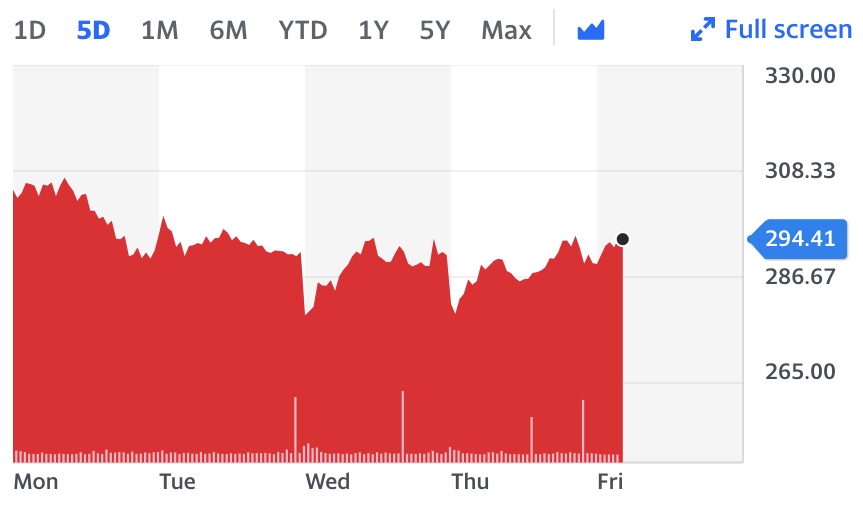TUI signs $90m sale and leaseback agreement with BOC Aviation

The world’s largest travel company TUI (TUI.L) has announced it has signed a $90m (£69.5m) sale and leaseback agreement for two new Boeing 737 MAX-8 aircraft with BOC Aviation.
The new planes were expected to be delivered during the 2020-2021 winter season. TUI’s deal is part of a deferred re-fleeting programme with Boeing (BA).
TUI’s agreement with BOC aviation is expected to be on standard commercial terms and would create a total lifetime lease obligation of around €88m ($103m, £79.4m) to commence by the end of the 2021 financial year, the company said.
Watch: easyJet predicts £845m loss due to pandemic
The aviation industry has been hammered by the coronavirus pandemic, which saw global lockdowns ground planes and affect passenger numbers.
This month, the International Air Transport Association (IATA) said passenger demand has dwindled and 2020 is expected to see passenger numbers down at least 70% compared with 2019 for travel to/from/within Europe. IATA says that only 340 million travellers in the region are expected to fly in 2020 compared with close to 1.2 billion that flew last year.
Shares at TUI rose 0.3% on the news on Friday.

READ MORE: Coronavirus: EasyJet sells and leases back planes to raise £305.7m to survive
On Tuesday, budget airline easyJet (EZJ.L) sold and leased back nine Airbus planes in a bid to shore up its finances, raising $398.6m in cash to help it survive the coronavirus crisis.
EasyJet, left the door open to more similar deals in a statement to investors, noting it still had 152 fully-owned aircraft and calling the sale-and-leaseback market “robust.”
The deals with two companies underline the challenge facing airlines with demand for air travel worldwide taking a hammering from the pandemic. EasyJet had already raised more than £2.4bn in cash since COVID-19 hit.
The news comes after the European Union Aviation Safety Agency (EASA) signalled that the grounded MAX plane could be allowed to fly before the end of the year.
Last week it was announced that the MAX, which was banned in March 2019 following two fatal crashes that took the lives of 346 people, is nearing reauthorisation in the US and EU, the two key jurisdictions after a hosts of tests.
In September, the airline underwent a multi-agency nine-day review at Gatwick airport in London. Civil aviation authorities and airline flight crews from the US, EU, Canada and Brazil reviewed Boeing’s proposed training for 737 MAX flight crews.
Watch: What are negative interest rates?

